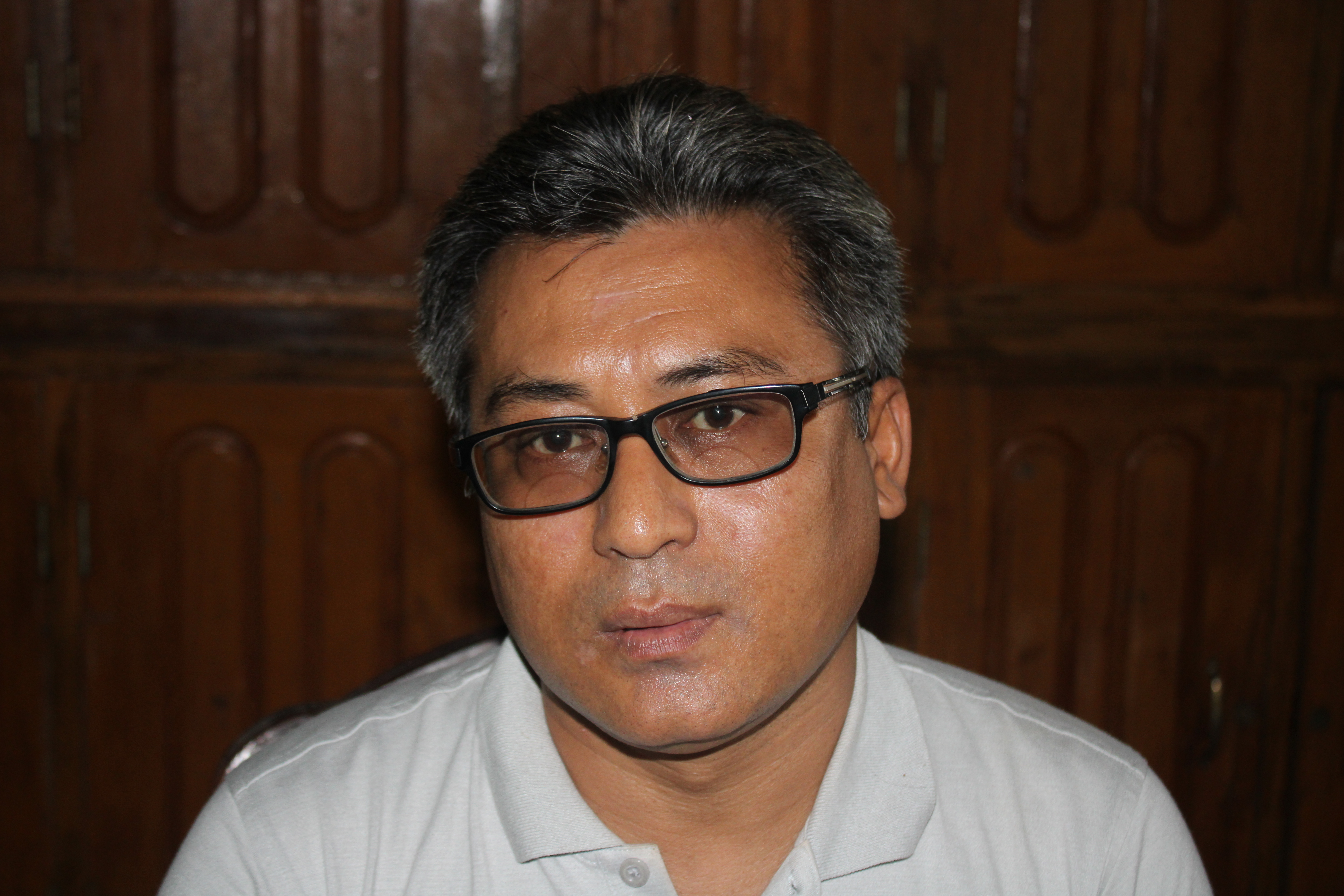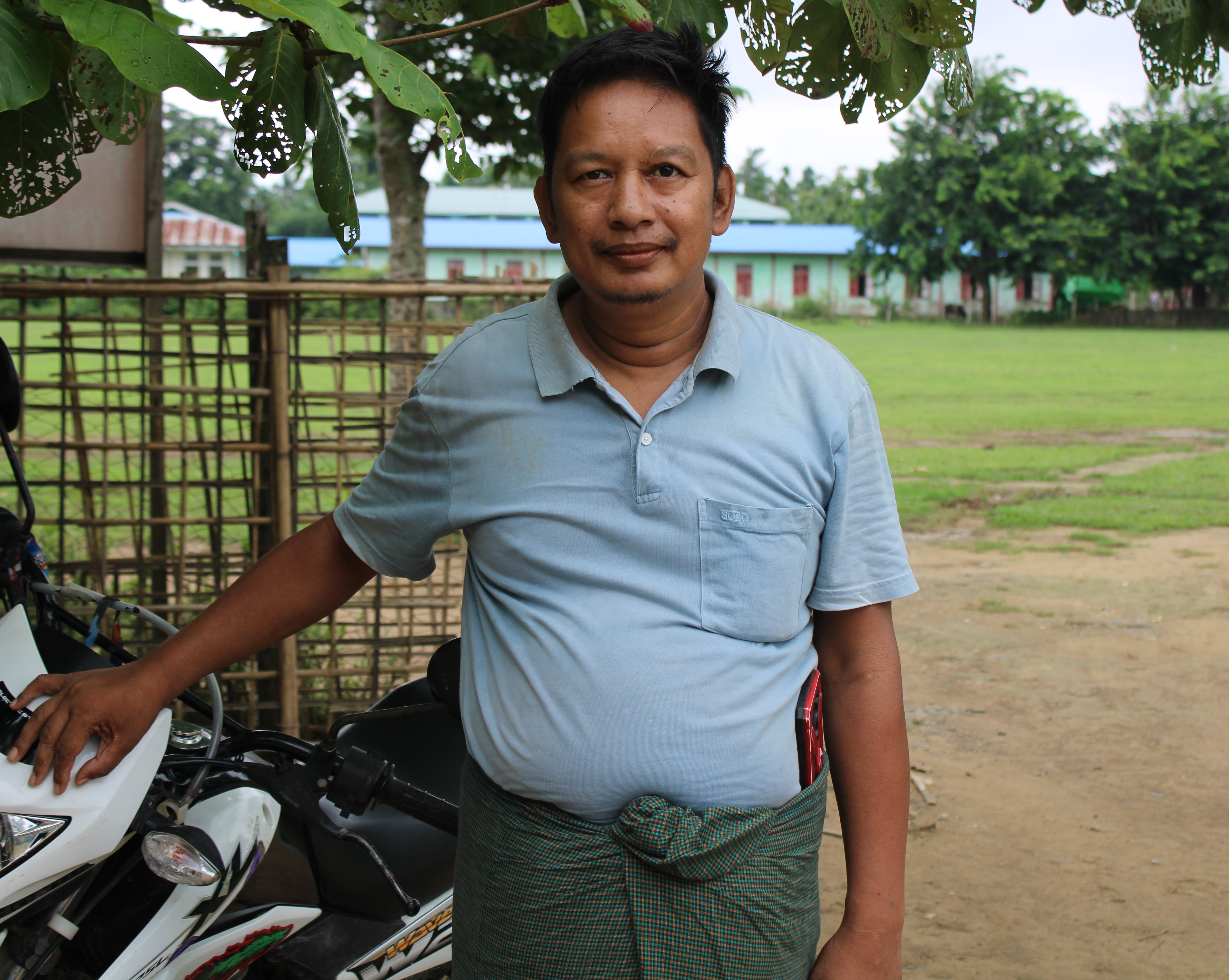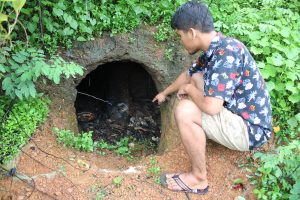Myanmar’s military regime lost no time in cracking down on media houses and journalists after it grabbed power through a coup nearly four years ago. It viewed any documentation of its gross abuse of human rights and the extensive opposition to its rule, including the armed resistance, as a danger that had to be halted by all means.
Since the coup in February 2021, the military has killed at least five journalists and as many as 64 media persons have been imprisoned. Thousands have fled junta-controlled areas to regions either occupied by the resistance forces or abroad, where they remain steadfastly engaged in publishing news of the country. And there are also brave journalists who have doggedly continued to report from the conflict zones despite the hazards of arrest, torture, and execution.
The Diplomat interviewed two journalists in Myanmar’s Rakhine State who narrated what they had gathered about an incident in which a journalist’s remains were recovered by the Arakan Army from a grave inside a military establishment.
Narrow Escape for 20 Journalists

Aung Marm Oo, editor of the Development Media Group, at Kyauktaw in Myanmar’s Rakhine State. Photo by Rajeev Bhattacharyya.
Aung Marm Oo escaped being nabbed by the military on several occasions. He came under the scanner of the government years before the coup when he was the general secretary of the All Arakan Students’ and Youths’ Congress (AASYC) and the Students and Youth Congress of Burma (SYCB). Later, he became an ardent environmental activist after being associated with the Arakan Rivers Network.
Aung Marm Oo took the plunge into journalism in 2013 when he assumed the role of editor-in-chief and executive director of Development Media Group (DMG) in Yangon, covering Chin State and Rakhine State with a bimonthly online news magazine. The same year, the office was shifted to Sittwe, the capital of Rakhine State, from where the media outlet continued to operate with a network of reporters across the region.
Trouble began to brew for all media outlets in the country after the coup. “The war was on between the military and Arakan Army. We reported a lot on human rights violations by the military and covered a wide spectrum of issues such as Muslims, LGBTQ, etc. This is something that the military did not like,” Aung Marm Oo said in an interview on July 2.
Last year, on October 29, the DMG’s office in Sittwe was raided by a combined squad of the military and police. At the time, the office was closed for the annual festival celebrated on Full Moon Day. Two persons, reporter Ko Htet Aung and security guard Ko Soe Win Aung, who were present in the office at the time of the raid were arrested and later sentenced to five years in prison with hard labor. All equipment and material, including cameras and computers, were confiscated.
“I was in Yangon and my colleagues were scattered in Buthidaung, Mrauk U, and Kyauktaw when our office was raided. In Yangon, I was not at my residence when the police came searching for me. Without wasting any time, I escaped from the city in the vehicle of my cousin,” Aung Marm Oo narrated.
“Twenty journalists from our organization also had a narrow escape. They slipped out just in time to avoid being arrested.”
The military charged the editor and the other journalists with different offenses.
From Yangon, Aung Marm Oo managed to reach Pauktaw in Rakhine State where he could hide only for a week. Thereafter, he relocated continuously to different places, including some remote villages, till he reached Kyauktaw sometime in the end of April this year. Kyauktaw had already been captured by the Arakan Army from the military and was considered safe, although the town had suffered aerial strikes on at least 10 occasions earlier, killing a few people and destroying many houses.
The team has managed to sustain the media venture through grants from Arakanese expatriates and global agencies.
Incidentally, DMG is the only media outlet in Arakan whose entire staff has continued to operate from within Myanmar. The employees of most other media houses in the country were compelled to relocate to Thailand and Bangladesh for fear of being arrested and killed.
Compiling News in Bunkers

Freelance journalist Min Htee at Ponnagyun in Myanmar’s Rakhine State. Photo by Rajeev Bhattacharyya.
Besides the DMG journalists, there are around 40 reporters in Arakan affiliated with media houses such as Democratic Voice of Burma (DVB), Narinjara News Agency, Western News, Arakan Princess, Mizzima, The Irrawaddy, and Arakan Bay News who have continued to send reports regularly from the ground. Many among them have reportedly had a close shave from being apprehended by the military.
Min Htee, whom I interviewed in Ponnagyun on June 18, is associated with DVB and other media houses. He dodged bullets on many occasions before the township was captured by the Arakan Army early in March.
“The war started in Arakan on November 13 last year. It was an extremely challenging task for journalists like us to continue to send reports. At times, I had to compile reports sitting in the bunkers of the Arakan Army even as the artillery shelling was on,” explained Min Htee. “And I escaped twice from being arrested by the military last year.”
The danger from the military has subsided since it was pushed out of the township. But surviving as a freelance journalist is difficult. Payments to freelance journalists is based on the number of stories published. Dispatching news is not easy and possible only in places where either the Arakan Army or its political wing, the United League of Arakan (ULA), have access to the internet through satellites. In addition, banks are shut, which means that the monthly payments that media houses send have to be routed through brokers who charge 6 percent of the total amount.
Min Htee said that a large sum of his monthly payment is spent on traveling to gather news. Without a cell phone, the only option is to visit the spots and gather news including photographs and videos of incidents. “The price of commodities including petrol is soaring. But we have to continue to work hard and give balanced reports. It is difficult to predict the future in Arakan,” he said.
Arrested, Tortured and Killed
Phoe Thiha aka Myat Thu Tun, a well-known journalist in Mrauk U in central Rakhine State, has been engaged with different media houses such as 7Day News Journal, Democratic Voice of Burma, The Voice, Development Media Group, and other domestic and international news agencies over the past decade. Unlike Aung Marm Oo and Min Htee, Phoe Thiha was not lucky enough to escape being captured by the military.
Before it was forced out of Mrauk U, the military jailed and killed many people on flimsy charges. Among those killed was Phoe Thiha, who had fearlessly reported on the brutal crackdown in the township after the coup.
A senior functionary of the ULA said that Phoe Thiha was arrested in September last year and incarcerated at a jail in the town before being shifted to the headquarters of the military’s Light Infantry Battalion 378 some seven miles away.
Phoe Thiha was charged with violating sections of the penal code for allegedly writing and spreading false news on social media and incitement, which carries a punishment of up to three years in prison. But the military had other plans for the journalist and the six other people, including a rap singer, who were detained in the military establishment. They were lined up before a firing squad on January 31, about a week before the Arakan Army occupied Mrauk U.
On July 1, I visited the establishment of the Light Infantry Battalion 378, which has been occupied by the Arakan Army. The establishment was spread over about 5 acres of land with trees, ponds, and marshy jungles at the rear of the compound. Attached to one of the long barracks where soldiers lived was a room that was utilized for torturing detainees, a functionary of the ULA told me. He also showed me graves in the jungle behind. Four pits were discernible on a raised mound of earth where the dead bodies were dumped. The Arakan Army found the decomposed bodies and bones scattered in and outside the pits.
After the Arakan Army informed them, the family members of the deceased gathered the remains for funeral rites.
Journalists have been described as “the oxygen of the ongoing movement” for the restoration of democracy in Myanmar. After the coup, the military’s determined efforts to curtail the flow of information have resulted in increasing hostility toward journalists. Data compiled by the Committee to Protect Journalists (CPJ), a global media watchdog, revealed that Myanmar has become the second-worst jailer of journalists after China. The regime’s atrocities are likely to continue, although its desired effect on choking the transmission of news has not been fully successful.

































